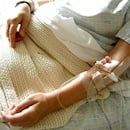
Always Events: A New Trend in Healthcare?
Clinicians know about Never Events, those largely preventable adverse occurrences which the National Quality Forum has identified. The Hospital-Acquired Conditions (HAC) for which CMS denies reimbursement include many Never Events. Clinicians also know about Sentinel Events, those events that harm patients or staff and for which the Joint Commission (TJC) tracks. It’s no wonder the word “events” carries some negative baggage in healthcare circles.
Until now. Enter “Always Events®,” described as positive aspects of the patient experience so important to patients/families that healthcare providers should consistently perform them (IHI, 2014). Healthcare organizations and healthcare personnel design Always Events® based on the patient’s desires and preferences, rather than the provider’s assumptions about what their patients need.
Healthcare organizations are sharpening their focus on patient's perceptions of care, in part because of the impact of the Hospital Consumer Assessment of Healthcare Providers and Systems (HCAHPS) results on reimbursement and public image. In addition, “research indicates that improved patient experiences lead to better outcomes and management of chronic conditions, safer care, fewer readmissions, greater trust in health care systems, and greater joy in work for those providing care” (Edgman-Levitan, et al., 2003).
The goal of the Always Events® program is to translate person- and family-centered principles into tangible action. New approaches to communicating and collaborating with patients and families have emerged and are being piloted across multiple organizations with great success (IHI, 2014).
Always Events® Meet Four Criteria:
- Important
- Evidence-based
- Measurable
- Affordable and Sustainable
They Include clear, action-oriented, and pervasive practices or sets of behaviors that provide:
- A foundation for partnering with patients and their families.
- Actions that will ensure optimal patient experience and improved outcomes. A unifying force for all, demonstrating an ongoing commitment to person- and family-centered care.
In February 2014, IHI published the Always Events Getting Started Kit, available for free download on the IHI website. The kit defines a process for implementing Always Events initiatives and emphasizes the importance of both leadership and staff engagement.
Nurses are key stakeholders in patient satisfaction ratings. Participate in your organization’s Always Events® initiatives to improve your facility’s HCAHPS score. Identify and share your own approaches for engaging with patients and families. Respect and prioritize patient and family requests and perspectives, and enjoy the satisfaction of providing excellent care as you work with increasingly engaged, satisfied clients!
Biography:
Bette Case Di Leonardi has worked in nursing, education, and healthcare administration for more than 40 years and was among the first group of nurses certified in Nursing Professional Development. Today, Di Leonardi is an independent consultant who publishes and presents on a variety of professional and educational topics.
References:
Edgman-Levitan, S., Shaller, D., et al. (2003). The CAHPS improvement guide. Boston: Harvard Medical School. Institute for Healthcare Improvement [IHI]. (2014). Always Events® getting started kit. Cambridge, MA: IHI.




